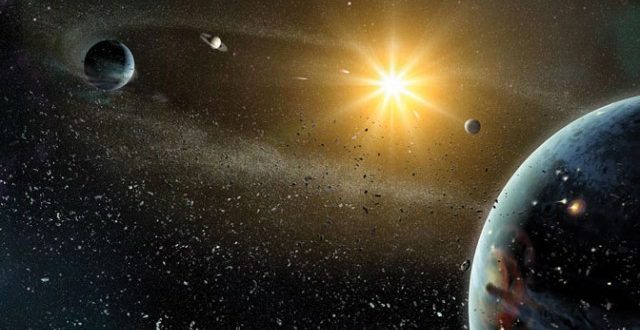Scientists at the University of Michigan found a new dwarf planet in our solar system.
Known for now as 2014 UZ224, the newly found planet is 330 miles wide, 8.5 billion miles from the sun, and has a year equivalent to 1,100 Earth years
The discovery of UZ224 was possible thanks to the Dark Energy Camera in the Chilean Andes. University of Michigan astronomer David Gerdes, who helped develop the camera, led a group of undergraduate students to look for objects moving about in the solar system.
Objects like stars don’t appear to move positions from our vantage point on Earth, because they’re so far away. But planets or asteroids will show up in slightly different positions in pictures taken over multiple nights. In the discovery of 2014 UZ224, however, the pictures of the galaxy map weren’t from a straight succession of nights.
“We often just have a single observation of the thing, on one night,” Gerdes said in an NPR article. “And then two weeks later one observation, and then five nights later another observation, and for months later another observation. So the connecting-the-dots problem is much more challenging.” They developed software, however, to solve that problem.
Almost 14 billion kilometers away, 2014 UZ224 is the third most distant object in the Kuiper Belt, the region of the solar system beyond Neptune’s orbit. While it’s arguable that 2014 UZ224 is too small to qualify as a dwarf planet, for now the description holds. Other dwarf planets like Pluto, Haumea, Makemake, and Eris each take less time to orbit the sun: 1,500 mile-wide Pluto, for instance, takes 248 years, while the rest take 285 years, 310 years, 557 years respectively.
The discovery of 2014 UZ224 could also lead to finding other objects in the solar system, such as Planet Nine, supposedly ten times larger than Earth. The images of the galaxy map, instrumental in finding the new dwarf planet, may now help find the supposed hidden giant planet. “It would be the most exciting astronomical discovery in our lifetime,” Gerdes told NPR.
Agencies/Canadajournal
 Canada Journal – News of the World Articles and videos to bring you the biggest Canadian news stories from across the country every day
Canada Journal – News of the World Articles and videos to bring you the biggest Canadian news stories from across the country every day



